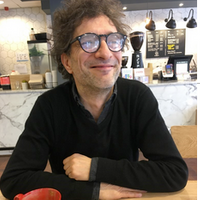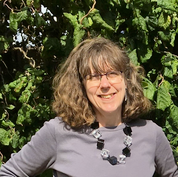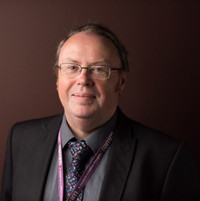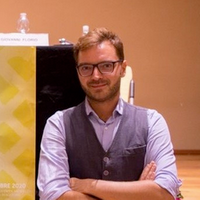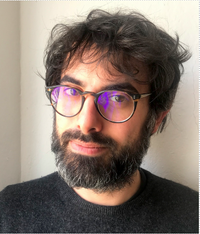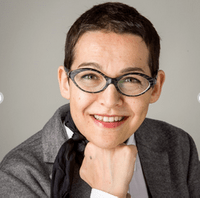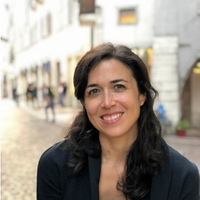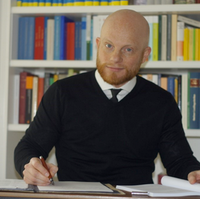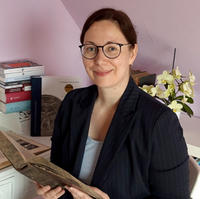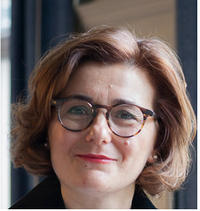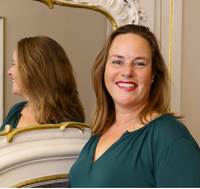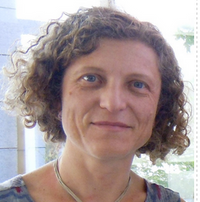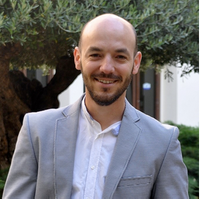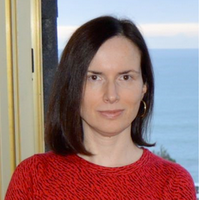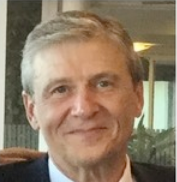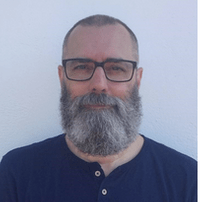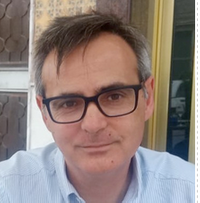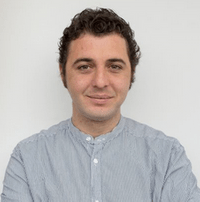Project Team
University of Exeter, United Kingdom
Prof. Fabrizio Nevola is Professor of Art History and Visual Culture at the University of Exeter and Project Leader for PUblic REnaissance. He specialises on the urban and architectural history of Early Modern cities, with a particular focus on public space and the Italian peninsula. Recent work has involved significant elements of digital humanities approaches, also applied to public engagement. He is the author of Siena: Constructing the Renaissance City (Yale University Press, 2007) and Street Life in Renaissance Italy (Yale University Press, 2020). Read more (staff page).
Dr. David Rosenthal is a historian of early modern Italy, specialising in urban social history. He co-created the Hidden Florence app with Fabrizio Nevola and is supervising editor of the Hidden Cities apps. He is the author of Kings of the Street: Power, Community and Ritual in Renaissance Florence (2015) and co-editor of two forthcoming volumes, Hidden Cities: Urban Space, Geolocated Apps, and Public History in Early Modern Europe and Disaster in the Early Modern World. Read more.
Dr. Kate Osborne was awarded her PhD on Elizabeth Exeter’s ‘middling sorts’ and is a Postdoctoral Research Fellow for the Hidden Cities project at the University of Exeter. She is also currently working on a paper about Exeter’s Elizabethan immigrants and will be developing her doctoral work through further research, public talks and publication. Read more (staff page).
Tom Cadbury (Royal Albert Memorial Museum, Exeter) is an Assistant Curator. His main focus is RAMM’s antiquities collection which covers local archaeology and history, numismatics and the archaeology of Egypt, the Mediterranean and Western Asia. As there are well over one million objects in the collection this keeps him busy! Read more (staff page).
Rick Lawrence (Royal Albert Memorial Museum, Exeter) had responsibilities that included maintaining RAMM’s online presence, fostering a digital culture, collections database management, meeting digital targets, participating in local, national and international partnership projects and managing digital content for galleries and exhibitions. His role also covered strategic and project planning, plus contributing to the business plan and evaluation. Read more (staff page). We are very sad that Rick died in autumn 2021.
FBK-ISIG Fondazione Bruno Kessler, Italian-German Historical Institute, Trento (Italy)
Dr. Massimo Rospocher (PI, FBK-ISIG), completed his PhD at the European University Institute (EUI), is currently a full-time Researcher at the Italian-German Historical Institute (Trento). He is a cultural historian of early modern Europe and his research focuses on the ways in which political communication occurred in urban public spaces (e.g. markets, streets, and squares) through the interaction of different media. Read more (staff page).
Dr. Alessandro Paris (Post-doc, FBK-ISIG), completed his Ph.D. in Early Modern History at the University of Trento, and carries out research on cultural, religious, social and urban history of Trentino. Is currently a Post-doc fellow at the Italian-German Historical Institute of the Bruno Kessler Foundation in Trento and he collaborates with museums and public history projects. Read more (staff page).
Dr. Enrico Valseriati (Post doc, FBK-ISIG), completed his PhD in History and Anthropology (Early Modern History). He is currently a research fellow at the Italian-German Historical Institute in Trento. His main research interests are: Republic of Venice; Italian Renaissance; Early Modern History; History Didactics; Humanism and Philology. Read more (staff page).
Dr. Umberto Cecchinato was awarded his PhD in Civiltà del Rinascimento in 2019, at Scuola Normale Superiore, Pisa. His studies focus on the connections between festive culture, musical performances, and violence in the Medieval and Early Modern Europe. He is the editor of medieval normative texts of the Republic of Venice. Read more (staff page)
Prof. Serena Luzzi (University of Trento) is Associate Professor of Modern History at the University of Trento. She has dedicated various studies on the theme of mobility during the modern age. She is the author of the volume Stranieri in città. Presenzatedesca e societàurbana a Trento (secoli XV-XVIII), Bologna, il Mulino, 2003. Among his current research themes there is mobility and social control in 19th century Central Europe.
Prof. Rosa Salzberg (University of Warwick) is Associate Professor of Italian Renaissance History at the University of Warwick, U.K.. She is the author of Ephemeral City: Cheap Print and Urban Culture in Renaissance Venice (Manchester University Press, 2014) and numerous book chapters and journal articles. In 2016-19 she was Marie Sklowdowska-Curie Fellow at the European University Institute, Florence, working on the history of migration and mobility in early modern Venice. Read more (staff page).
See more: FBK-ISIG website
Friedrich-Alexander-Universität Erlangen-Nürnberg (FAU), Germany
Prof. Dr. Daniel Bellingradt received his Ph.D. in 2010 (Free University of Berlin) and is Professor at the Institute for the Study of the Book at Erlangen-Nuremberg University, Germany. Co-editor of the journal ‘Jahrbuch für Kommunikationsgeschichte’, Daniel has published several monographs, edited volumes and many articles. His interests are rooted in cultural history and are centered on the materiality, sociality and spatiality of communication flows. Read more (staff page).
Claudia Heise (M.A., University of Erfurt) is a Ph.D. student at the Institute for the Study of the Book at Erlangen-Nuremberg University, Germany, supervised by Prof. Daniel Bellingradt. Her thesis focuses medial resonances in early modern Hamburg during the Jastram-Snitger-turmoil (c. 1686), examining pamphlets and their interaction with public spaces. Claudia’s research interests root in early modern urban, spatial, and media history. Read more (staff page).
University of Groningen, Netherlands
Prof. Dr. Sabrina Corbellini is Rosalind Franklin Fellow and Professor of “History of Reading in Premodern Europe” at the University of Groningen. She specializes in the reconstruction and study of religious reading activities in premodern Europe, in particular during the “long fifteenth century” (1350-1520). Together with Wim François (University of Louvain, BE), she since 2017 leads the project “In Readers’ Hands. Early Modern Dutch Bibles from a Users’ Perspective”, which develops new methodological approaches to the reconstruction of the religious reading activities in Early Modern Europe. She has published extensively on (religious) reading and has edited the volumes Instructing the Soul, Feeding the Spirit and Awakening the Passion. Cultures of Religious Reading in the Late Middle Ages (Brepols 2013) and Discovering the Riches: Religious Reading in Late Medieval and Early Modern Europe. (Brill 2015). Her participation in the HERA JPR Public Renaissance (2019-2022) marks the inclusion of spatial approaches in the reconstruction of the history of books and reading. Read more (staff page).
Dr Margriet Hoogvliet is postdoctoral researcher at the University of Groningen. After the publication of her thesis on medieval mappae mundi (Turnhout: Brepols, 2007), she has published widely on the cultural history of France during the late Middle Ages and the sixteenth century. Her main research interests include the reading cultures of religious texts in French, literacy and book ownership among artisans and poor people, urban history (France, Low Countries), media studies, visual culture, and spatial humanities. Read more (staff page).
Universitat de València, Spain
Prof. Mónica Bolufer Peruga is Professor of Early Modern History at the University of Valencia, specializes in cultural and gender history. Her last books include Arte y artificio de la vida en común (2019) and The Routledge Companion to the Hispanic Enlightenment (2020). She coordinates the project CIRGEN: Circulating Gender in the Global Enlightenment (ERC AdG 787015). Read more (staff page).
Dr. Juan Gomis Coloma (Catholic University of Valencia) specializes in popular print culture in Early Modern Europe. He has studied one of the most widespread popular genres in Spain, the so-called “Literatura de Cordel”, from multiple perspectives: cultural representations, materiality, production and dissemination, and usages and readers. Read more.
Dr. Blanca Llanes Parra holds a Ph.D. from the Joint Doctoral Program in Early Modern History at the University of Cantabria and the Autonomous University of Madrid, and a master’s degree in Museum Studies from New York University. She is currently a senior doctor researcher at the University of Valencia. She is interested in the history of crime, justice and social control in the early modern period, with a focus on the city of Madrid.
Prof. Pablo Pérez García is Professor of Early Modern History at the University of Valencia. His research focuses on the social and cultural history of early modern Valencia (16th-18th centuries). He is also the author of different outreach publications. Read more (staff page).
Prof. Jorge Antonio Catalá Sanz is Professor of Early Modern History at the University of Valencia. He is the author of different books and articles on Valencia’s nobility, the Enlightenment reforms, the death penalty, the Germanías and Moorish banditry. Read more (staff page).
Prof. Juan Francisco Pardo Molero is Professor of Early Modern History at the University of Valencia. His research focuses on defense, the Moorish minority, the Mediterranean frontier, and the institutions, ideas and political practices in the Hispanic Monarchy during the sixteenth and seventeenth centuries. Among his books it is worth mentioning La defensa del imperio. Carlos V, Valencia y el Mediterráneo (2001). Read more (staff page).
Dr. Daniel Muñoz Navarro is Assistant Professor at the University of Valencia. After receiving his Ph.D. from the University of Valencia, he was a postdoctoral researcher at the Scuola Superiore di Studi Storici in San Marino. His research focuses on the study of labour markets and consumer spaces in Mediterranean cities during the early modern period. Read more (staff page).
Associated PhD students
Sarah Spencer (University of Exeter)

